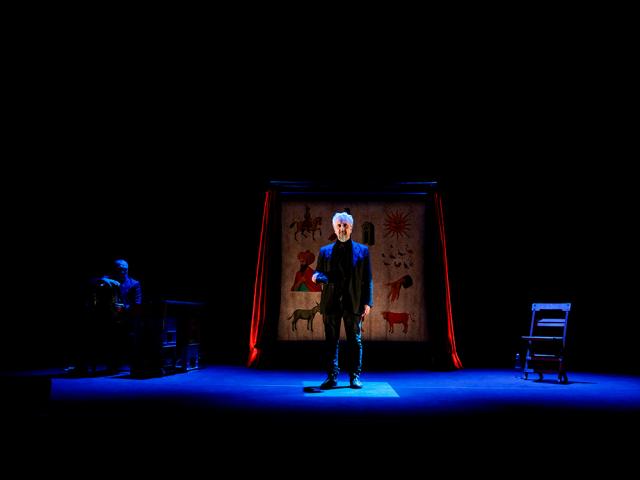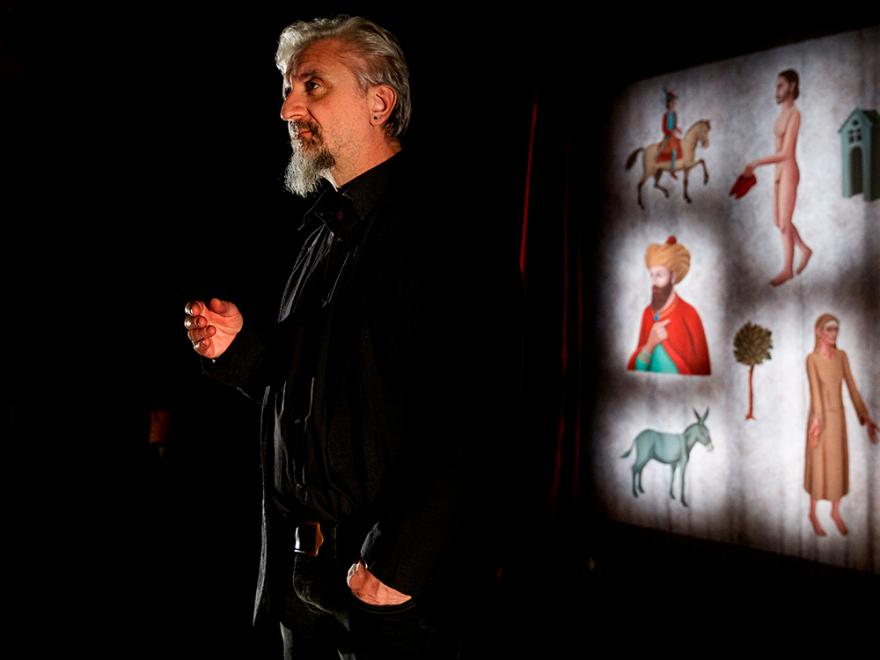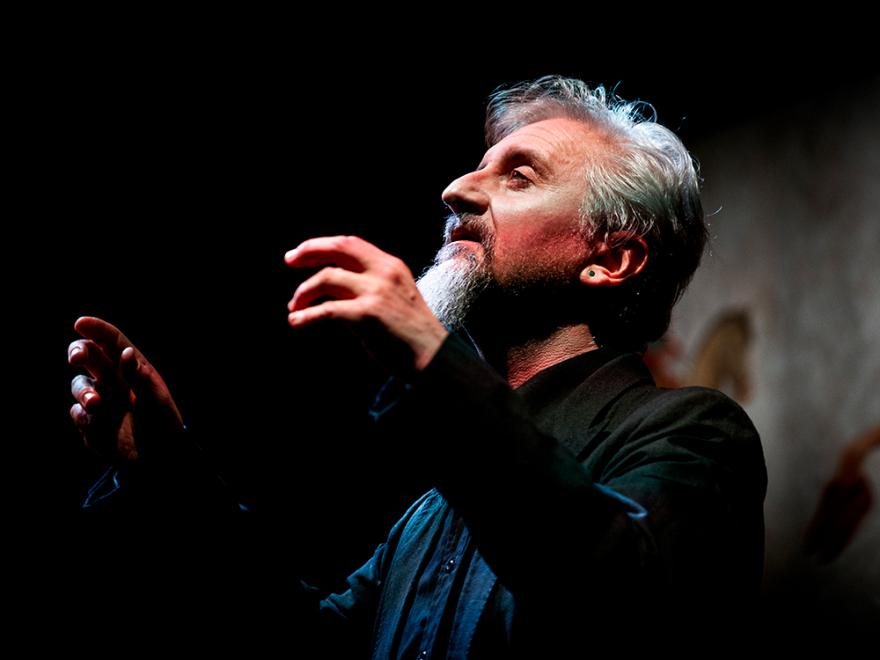«Why, after eight hundred years, are we still fascinated by Francis? Where is he today?» Ascanio Celestini imagines the life of Francis now, how the saint would experience poverty in contemporary Italy and who he would choose as a travelling companion, in order to not simply be poor, but serve the poor.
Teatro Strehler
A man who went against convention, choosing, despite his wealth, not only to be poor, but to serve the poor. A knight who no longer wanted to fight, and who, as a monk during the crusades, came to the Holy Land to preach peace and brotherhood. «Why, after eight hundred years, are we still fascinated by Francis? Where is he today? Among the tramps begging in a supermarket car park? Among the African porters who shift parcels in some logistics warehouse?» Through these questions, in the role of character-narrator, Ascanio Celestini tells of a contemporary Francis, who finds his characters in the streets, in the midst of council housing, among those who, now as in the past, nobody sees: «He looks down, to the car park in front of his council house. There are many characters, all sharing the same patch of asphalt, the same human condition. Giobbe, an illiterate warehouse worker who has organised the warehouse without a single written word. Joseph, who left his home in the heart of Africa. He has been a burier, a slave, a castaway, a prisoner, a porter and a tramp. He was looking for Italy in a plate of spaghetti but found it in the beatings in the Santa Maria Capua Vetere prison. The gypsy who began smoking at the age of eight and who is still there, smoking, next to the drinking fountain in front of the bar.»
Francis is also credited with inventing the nativity scene, which the Saint created for the first time in Greccio: «On Christmas night in 1223, Francis created his first nativity scene in that small village. An ox, a donkey, and a manger. Nothing else. The aim was to demonstrate that Jesus was born poor. In a poor town, a place for the poor. »
Duration: 110’ without interval
Learn more
Booklet
ReadA man who went against convention, choosing, despite his wealth, not only to be poor, but to serve the poor. A knight who no longer wanted to fight, and who, as a monk during the crusades, came to the Holy Land to preach peace and brotherhood. «Why, after eight hundred years, are we still fascinated by Francis? Where is he today? Among the tramps begging in a supermarket car park? Among the African porters who shift parcels in some logistics warehouse?» Through these questions, in the role of character-narrator, Ascanio Celestini tells of a contemporary Francis, who finds his characters in the streets, in the midst of council housing, among those who, now as in the past, nobody sees: «He looks down, to the car park in front of his council house. There are many characters, all sharing the same patch of asphalt, the same human condition. Giobbe, an illiterate warehouse worker who has organised the warehouse without a single written word. Joseph, who left his home in the heart of Africa. He has been a burier, a slave, a castaway, a prisoner, a porter and a tramp. He was looking for Italy in a plate of spaghetti but found it in the beatings in the Santa Maria Capua Vetere prison. The gypsy who began smoking at the age of eight and who is still there, smoking, next to the drinking fountain in front of the bar.»
Francis is also credited with inventing the nativity scene, which the Saint created for the first time in Greccio: «On Christmas night in 1223, Francis created his first nativity scene in that small village. An ox, a donkey, and a manger. Nothing else. The aim was to demonstrate that Jesus was born poor. In a poor town, a place for the poor. »
Duration: 110’ without interval
Learn more
Booklet
ReadCredits
RUMBA
L'asino e il bue del presepe di San Francesco nel parcheggio del supermercato
by and with Ascanio Celestini
music Gianluca Casadei
voice Agata Celestini
painted images Franco Biagioni
sound Andrea Pesce
lighting Filip Marocchi
organization Sara Severoni
a Fabbrica srl, Fondazione Musica Per Roma, Teatro Carcano production
commissioned by Comitato Nazionale Greccio 2023
on the occasion on the eighth centenary of the first representation of the nativity scene of Saint Francis, 1223-2023
distributed by Mismaonda
Photo © Pasqualini/MUSA
Tickets
Category of performance Hosted Shows
Stalls full price € 33 | Discounted (under 26 and over 65) € 21
Balcony full price € 26 | Discounted (under 26 and over 65) € 18
Subscriptions
The performance is available for subscription holders
To purchase a subscription online, click here
How and where to purchase
For information, click here
Organised groups and audiences
For information on tickets for organised groups:
tel. +39 02 72 333 216
email promozione.pubblico@piccoloteatromilano.it














